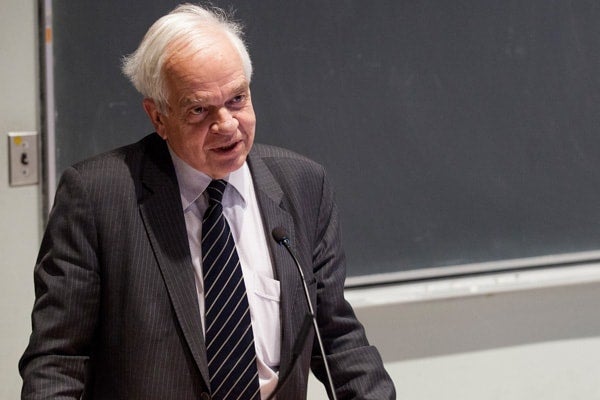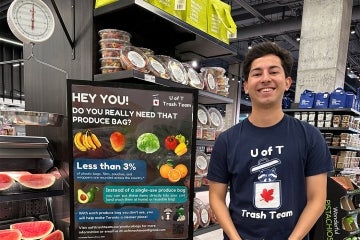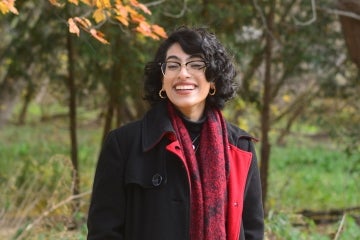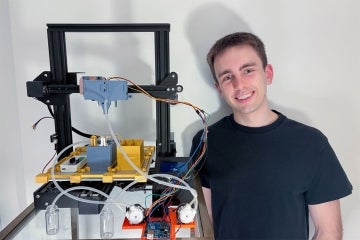
Getting 25,000 Syrian refugees to Canada is just the first step, federal minister says
Published: February 16, 2016
When Prime Minister Justin Trudeau welcomed the first planeload of Syrian refugees at Pearson International Airport last December, the world took notice, John McCallum, the federal minister of immigration, refugees and citizenship, told a U of T audience.
“When I was in Jordan last month, I met some little refugee children. They were not coming to Canada, they had hardly even heard of Canada,” McCallum recalled. “But one of them said to me, ‘I saw your prime minister welcome all of us Syrians at the airport.’ If a little refugee child in Jordan knew about it, I think a whole lot of people around the world knew about it too.”
McCallum was speaking at a panel on the Syrian refugee crisis organized by the University of Toronto Liberals, the University of Toronto International Relations Society, and the Munk School of Global Affairs G7 Research Group on February 12. Also speaking were Lifeline Syria Co-Founder and former Deputy Minister Naomi Alboim and Samer Muscati, director of U of T’s international human rights program.
Read more about the refugee crisis and U of T
The minister said that Canada is on target to meet its goal of 25,000 refugees by the end of February. But, he warned, the hard part is just beginning.
“The real challenge will be in how we welcome and settle these 25,000 new Canadians,” McCallum said. He noted that the 25,000 refugees the government is bringing in are among the most vulnerable, without language skills or education.
“It’s nothing to be ashamed of, it’s something to be proud of, that we’re not taking only people with PhDs or seeking out those who are innovative; we are taking the most vulnerable. So it is a greater challenge to make them happy and welcome and thriving in our country than if they came from a more well-heeled background. That’s why it’s so important to do it right.”

McCallum argued that, like previous waves of refugees, the Syrians will quickly become productive residents. “If you look at past waves of refugees, sooner, rather than later, they give back and it becomes a paying investment for Canada. They quickly get jobs and thrive. Especially now, with an aging population, we need them more than ever.”
Muscati said that Canada’s response, while noteworthy, will not have much impact on the refugee crisis. “The sad reality is that whatever Canada does, we can’t move Syria’s entire refugee population here. The only way to solve the crisis is to stop the war.”
Alboim, who noted that she herself was descended from refugees, called on McCallum to persuade his government colleagues to not only take in more Syrian refugees, but refugees from other countries as well, and to expand the government’s family reunification program. The minister responded that the government only has a limited amount of funds and that any expansion of the family reunification program would mean a reduction in the number of refugees the country could take in.
He said the government also has to balance resources for refugees against resources for needy Canadians.
“We want to welcome the refugees warmly, but we don’t want to put them in a privileged position relative to other Canadians. If another Canadian is receiving social assistance, should a refugee get more? If another Canadian has been waiting for over a year for social housing, should we put a refugee at the front of the queue?”
McCallum closed by noting that helping Syrian refugees is not solely the government’s responsibility. “It’s the Canadian community, it’s the provinces, it’s the cities and the NGOs, the settlement agencies and individual Canadians. It’s the entire country which will ultimately determine the success or the failure of how well we receive and acclimatize our new Syrian friends.”




